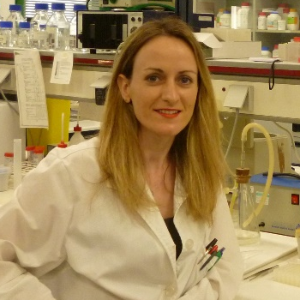Abstract:
Chromatin bridges are strands of incompletely segregated DNA connecting the anaphase poles or daughter nuclei. If unresolved, chromatin bridges can break in cytokinesis leading to micronuclei formation and accumulation of DNA damage. To prevent this, human cells form accumulations of polymerized actin (actin patches) at the base of the intercellular canal to stabilize chromatin bridges; however, the molecular mechanisms involved are incompletely understood. In the present study, we identify small GTPases, which control the growth or contraction of filamentous actin fibers, that localize to actin patches and are required for stable chromatin bridges in cytokinesis. Inhibition of these actin regulators reduces actin patch formation and promotes chromatin bridge breakage by confocal microscopy analysis of fixed cells or live-cell fluorescence microscopy. Furthermore, chromatin breakage in cells deficient for the above proteins is not caused by premature abscission, but correlates with reduced actin patches compared with wild-type cells. We also propose that DNA bridges generate tension inside the nucleus which is then transmitted through specific mechanosensitive complexes to the cell cytoskeleton to promote generation of actin patches in the cytoplasm. This study identifies a novel signaling pathway that prevents chromatin bridge breakage by promoting actin patch formation in cytokinesis in human cells. Because chromatin breakage can lead to genomic instability that is associated with cancer formation or progression, understanding how cells stabilize chromatin bridges may help us understand mechanisms of tumorigenesis.
Audience Take Away Notes:
- Genomic instability can be caused by chromatin bridge breakage in cytokinesis
- Actin fibers, called actin patches, are formed at the base of the intercellular canal to stabilize chromatin bridges and prevent them from breaking
- Novel signaling pathways preventing chromatin bridge breakage by promoting actin patch formation in cytokinesis




